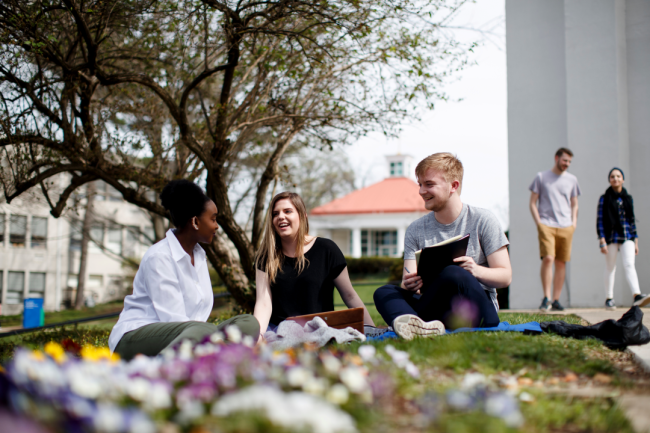You have /5 articles left.
Sign up for a free account or log in.

Starting this spring, graduate students studying clinical counseling at Marymount University can receive clinical experience working with community members to support their mental health.
Marymount University
As mental health concerns continue to rise among Americans, Marymount University in Virginia launched a community clinic to address local needs and provide experiential learning opportunities for counseling students.
Starting this spring, graduate students at Marymount are providing free virtual counseling sessions to the general public and the campus community, in partnership with the university’s student counseling services.
The Clinical Mental Health Counseling (CMHC) Community Training Clinic equips students with clinical work, preparing them for their future careers and helps close equity gaps in mental health services in rural areas.
What’s the need: Increasingly, talking about mental health and receiving care for mental health concerns is more common among adults in the U.S.
A 2023 survey from Talkspace, a virtual healthcare company, found 91 percent of respondents believe therapy and mental wellness exercises are good practices to prevent worsening of mental health, and 80 percent of respondents are more open to going to therapy than they were three years ago.
However, access to mental health care continues to be inequitable based on geographical location. In Arlington County, where Marymount is located, there are an estimated 59.6 mental health providers for every 100,000 residents, according to an ABC OTV analysis of federal data.
Beyond Arlington County, there is a need in rural areas to fill gaps in mental health care through telehealth services, as well, explains Lisa Jackson-Cherry, director of the school of counseling.
The background: Training clinics are not a new concept in graduate counseling education, as they provide a way to serve the community and give master’s and doctoral-level students hands-on experience in the field, Jackson-Cherry says.
Marymount leaders had considered establishing a training clinic for many years and a 2021 $1.2 million grant from the U.S. Health Resources and Services Administration (HRSA) to reach underserved populations spurred the clinic creation has made that possible.
Service is part of the university mission and this initiative hits multiple goals in providing experiential learning and giving back to local stakeholders, says Bonnie Kou, coordinator of graduate counseling clinical experiences.
How it works: The clinic employs master’s students studying clinical mental health counseling or pastoral clinical mental health counseling as well as doctoral students in the counselor education and supervision program, starting this fall. To be eligible, students must have completed prerequisite courses (outlined in program accreditation) and completed an application and an interview.
Staff selects those who have a passion for working with vulnerable populations and a desire to work with these groups in their careers, Kou explains.
Over the past few months, Marymount officials have reached out to Virginia organizations and groups to identify potential clients for the training clinic, such as hospitals, community mental health organizations, private practices and substance use treatment centers, among others.
At present, all clients served by the clinic are community members outside of Marymount, with the exception of a few alumni in the area, Jackson-Cherry says.
All master’s and doctoral students are supervised by faculty members and receive individual feedback regarding their practice, giving them hands-on training but also ensuring quality care for those receiving counseling.
There is no cap on the number of sessions a client can receive through the clinic, and students provide sessions both in-person on campus and through telehealth, with the hope of reaching groups who are unable to travel due to physical or transportation limitations.;
What’s next: The clinic is getting off the ground, with staff focused on building partnerships with community members and finding sustainable funding sources.
While the grant provides an initial layer of support, the clinic is limited to providing $10,000 stipends for only a select group of graduate students to compensate them for two semesters of work.
The School of Counseling team is preparing students to begin providing services later this spring and summer, with plans to on-board additional graduate students each semester as client need grows.
Additionally, faculty and staff are identifying protocol and supervision practices, as well as partnering within the university to support their work.
Seeking stories from campus leaders, faculty members and staff for our Student Success focus. Share here.




